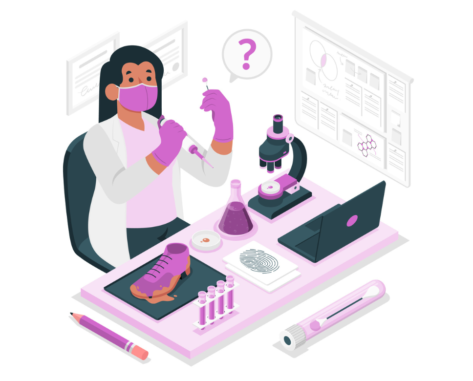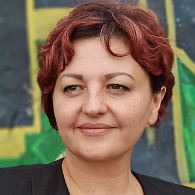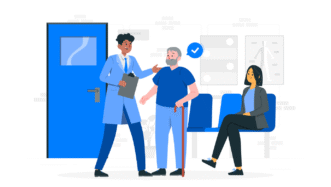LESSON OVERVIEW
The main objectives of this ESL lesson on forensic science are to:
- have an in-depth discussion of a narrow-field topic,
- practise collocations related to investigations and forensic science.
In this lesson, students have a chance to learn more about forensic science and talk about crime investigation on TV and in real life. They also learn and practise collocations with words like ‘evidence’, ‘samples’ and ‘conduct’. Students work with a video about the principles of forensic science and interesting examples and make predictions about forensic science.
WARM-UP & COLLOCATIONS
In this part of this ESL lesson on forensic science, students start with a warm-up task. First, they discuss some questions: they talk about content related to crime investigations and discuss solving different crimes. Then, students look at three stages of a forensic procedure (field, laboratory, medical) and think about what each of them might involve. After that, they read about these stages and discuss the new information. Students work with the texts more and find collocations (e.g. seal off a crime scene, lift fingerprints, preserve samples, conclusive evidence, etc.). This ESL lesson on forensic science also includes a discussion in which students need to use the collocations they find. In the discussion, students touch upon the challenges and limitations of forensic science and compare how this field is portrayed in films vs reality.
VIDEO & DISCUSSION
In this part of the lesson, students work with the video. First, they watch the first part of the video and complete the main principle that forensic science is based on. After that, they look at a few statements about this field and decide which option best completes each statement. Then, students watch the second part of the video and check their ideas. Finally, students watch the third part of the video and tick the facts that are mentioned. To sum up this ESL lesson on forensic science, students do two speaking activities. First, they complete some statements with their ideas. Students also look at some points (AR/VR, pandemics, climate change, etc.) and decide how they might affect forensic science in the future.
HOMEWORK/REVISION
This ESL lesson on forensic science also includes an additional task that you can use as homework or revision. In the task, students revise the collocations. The task is available in the teacher’s version of the worksheet. You can print it and hand it out to your students. It’s also included in the e-lesson plan.
Subscribe to unlock these and many other Standalone lesson lesson plans with the Unlimited planWORKSHEETS













This is an excellent lesson and very interesting. However, the audio is exceptionally poor and made it very difficult for the students to hear and therefore understand.
We’re not sure what you mean when saying that ‘the audio is exceptionally poor’. There a few speakers and some background music, however, we’d say the quality of the video and audio is good. Generally, it is a difficult video to understand (in terms of the vocabulary or topic), so that’s why we believe it’s suitable for advanced students.
A great lesson , so educational and interesting . My students loved it.
Thrilled to hear that! Thanks for taking the time to comment 🙂